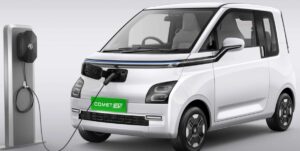India has potential to become a global leader in electric mobility, with the government setting ambitious targets for electric vehicle (EV) adoption by 2030. To achieve these goals, a robust and reliable charging infrastructure is crucial. The Indian EV charging landscape is rapidly evolving, with various stakeholders working together to address the challenges and capitalize on the opportunities presented by this transformative shift.
As of 2024, India has approximately 12,000 public EV charging points, with over 40 charge point operators (CPOs) actively participating in the market. However, this number is still far from adequate to meet the growing demand for EVs. It is estimated that India will need around 1.3 million charging points by 2030 to support the projected 8 crore EVs on the road.
To bridge this gap, the government has implemented several initiatives, such as the Faster Adoption of Electric Vehicles (FAME) scheme, which provides incentives for the development of charging infrastructure. Additionally, the Ministry of Heavy Industries has sanctioned the construction of 2,877 EV charging stations across multiple states, along with 1,576 stations across 16 highways and 9 expressways.
Innovative Solutions and Partnerships
The EV charging ecosystem in India is witnessing the emergence of innovative solutions and partnerships. Private companies are investing in the development of improved fast-charging technology, which can significantly reduce charging times and alleviate range anxiety. For instance, Exponent Energy has commercialized a one-of-its-kind 15-minute full charge solution without impacting battery life.
Furthermore, collaborations between public and private stakeholders are facilitating the deployment of charging stations and the adoption of EVs across urban and rural landscapes. Oil companies have been given Rs 800 crore to set up EV charging stations under the FAME scheme, while the government has allowed 100% Foreign Direct Investment (FDI) in the EV charging infrastructure sector.
Global Trends and Opportunities
India’s EV charging infrastructure market is at an inflection point, with significant growth potential. Globally, investments in the charging infrastructure space have accelerated, with cumulative investments going up from USD 30 billion in 2021 to USD 64 billion in 2022 and is expected to go as high as USD 350 billion by 2030.
China has been a clear leader in EV charging infrastructure deployment, with around 1.8 million charging points out of the 2.7 million units globally by the end of 2022. Since then, it has been on an unprecedented upward trajectory. Europe and the USA have also made significant strides, with 0.5 million and 0.1 million charging points, respectively. It is estimated that there will be a need for around 13 million public EV charging points globally by 2030.
The charging infrastructure space has also seen strong deal activity globally, with both financial and strategic investors backing early-stage platforms to deploy large networks. In 2023 alone, despite challenging economic conditions, there were at least 134 reported deals, with 77 announcing deal values totalling US$33.8 billion.
Challenges and the Way Forward
While the EV charging infrastructure in India is evolving rapidly, there are still challenges that need to be addressed. High operating costs, discom load, and uncertainty related to utilization rates of charging stations are holding back charge operators from expanding their reach. Additionally, India’s geographical diversity and varying population densities make it challenging to install and maintain charging stations in remote areas.
To overcome these challenges, a multi-pronged approach is required. Increased public and private investments, development of innovative charging solutions, and greater collaboration between stakeholders will be crucial in building a robust and reliable charging network. By addressing these challenges and capitalizing on the opportunities presented by the EV revolution, India can emerge as a global leader in sustainable mobility.












